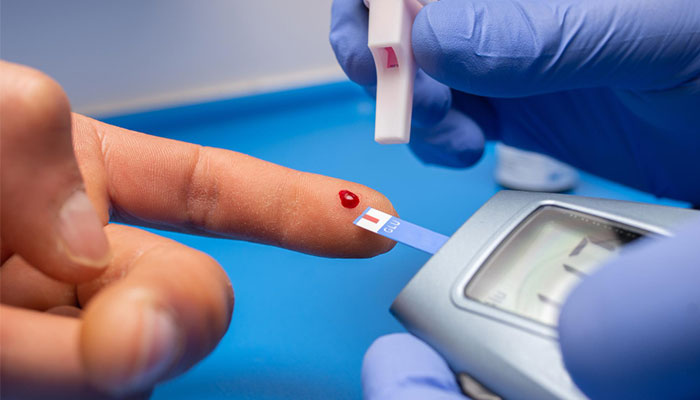Introduction
Refractory diabetes, also known as treatment-resistant diabetes, is defined as poor glycemic control despite sufficient medication. Even the best treatment regimens targeted for immediate symptom relief and achievement of glycemic targets may fail in this condition, necessitating the revival of the clinical perspective of endocrinology, a thorough evaluation, and a patient-specific management plan.
Signs and Symptoms of Refractory Diabetes
- Excessive thirst
- Increased urination
- Increased fatigue
- Loss of appetite
- Swelling of ankle, feet, hands, or eyes
- Leg cramps
- Protein in the urine
- Shortness of breath
- Infections like thrush
- High blood pressure
- Confusion
- Difficulty concentrating
- Changes in glucose levels
Causes of Refractory Diabetes
- Early age of onset
- Longer duration of diabetes
- Insulin resistance
- Beta cell dysfunction
- Inadequate treatment
- Greater complexity
- Numerous therapies
- Regular use of insulin
- Presence of microvascular complications
- Other co-morbidities (e.g., hypertension, obesity, chronic kidney disease)
Understanding Refractory Diabetes in Ayurveda
In Ayurveda, diabetes is typically caused by a combination of factors. The two primary causes of diabetes in Ayurveda are (a) an increase in Vata dosha due to the depletion of tissue; and (b) a decrease in the number of Srotas (inner transport system) due to the accumulation of excess dosha (Kapha) and fatty tissue.
Treatment and Management
Refractory diabetes, where blood sugar remains uncontrolled despite standard treatments, may require intensive insulin therapy, continuous glucose monitoring, and personalized lifestyle modifications. In some cases, advanced options like insulin pumps, islet cell transplantation, or investigational therapies might be considered. Consultation with an endocrinologist is crucial to tailor a comprehensive treatment plan.
Care offered by SGP’s PSA has been demonstrated to be effective in alleviating symptoms and enhancing the quality of life for patients with refractory diabetes. The primary focus of care delivered by the PSA is to manage symptoms, address emotional and psychological distress, and improve overall comfort.
FAQs about Refractory Diabetes
-
Recurrent diabetes is a type of diabetes that has come back after the patient has been in remission. Refractory diabetes, on the other hand, does not respond or cease to respond to treatment.
-
Each kidney is made of millions of microscopic filters (nephrons), which help in proper kidney function. However, over time, diabetes can cause high blood sugar levels, which affects the functioning of nephrons. Additionally, many individuals with diabetes also develop hypertension, which can also have a detrimental effect on the kidneys.
-
Consumption of foods with added sugars can be detrimental to maintaining optimal blood glucose levels. Additionally, sugar-sweetened beverages, foods with saturated fats, alcohol, and ultra-processed foods should be avoided.
-
Coping with refractory diabetes involves strict adherence to treatment plans, continuous glucose monitoring, maintaining a healthy lifestyle, seeking support from healthcare professionals and support groups, and considering advanced therapies when necessary.
-
Complications associated with refractory diabetes include cardiovascular issues, neuropathy, kidney problems, vision impairments, and a higher risk of infections due to weakened immune function.






